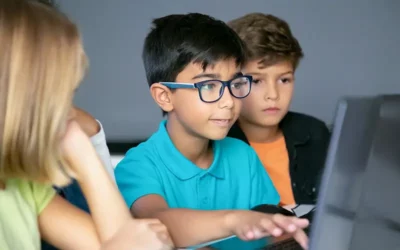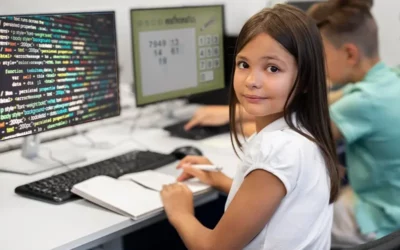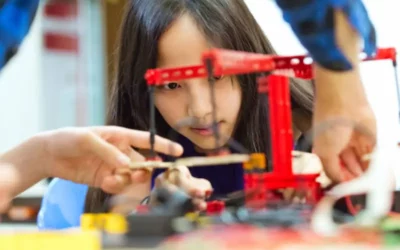Did you know that games can be more than just a source of entertainment for children? In today’s world, where technology is omnipresent, incorporating fun and educational games into children’s development has become increasingly important.
These games not only entertain but also provide a valuable opportunity for children to develop various skills, such as problem-solving, critical thinking, and creativity. In this article, we will explore the 15 best games for kids that are both fun and educational, ensuring a perfect blend of entertainment and learning.
Table of contents
Introduction
In today’s digital age, children are surrounded by screens and technology. While excessive screen time can be a concern, there are educational games available that can make learning fun and engaging for kids.
Games provide a dynamic and interactive environment where children can develop crucial skills such as problem-solving, critical thinking, and creativity. By presenting challenges and puzzles, these games encourage children to think strategically, analyze situations, and find innovative solutions.
Moreover, educational games can teach various subjects like math, science games, reading, and coding games for kids in an engaging and enjoyable manner. In addition to cognitive development, games also promote social skills as many games offer multiplayer options or cooperative activities.
Through teamwork and communication, children learn to collaborate, share, and empathize with others. Physical games, on the other hand, help develop motor skills and promote physical activity, ensuring a healthy and balanced lifestyle.
By combining fun and education, these games not only captivate children’s attention but also provide a foundation for lifelong learning. So, let’s embrace the power of games and watch as children thrive, grow, and learn in today’s digital world.
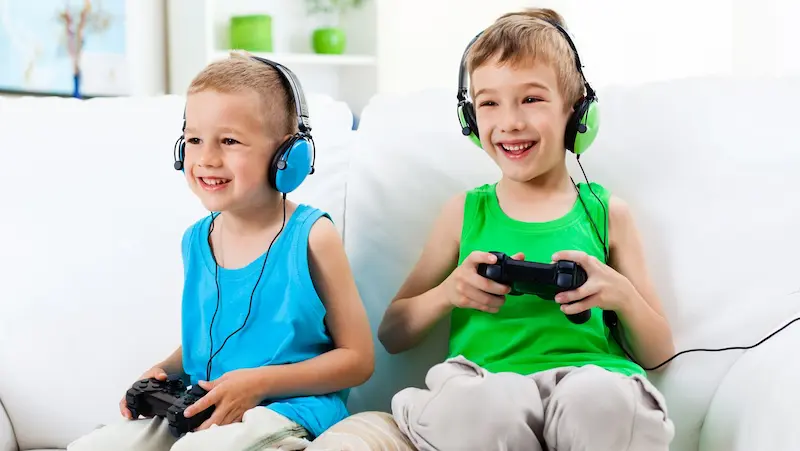
Importance of games in children’s development
Games play a significant role in children’s development, offering a range of benefits that contribute to their overall growth and learning. Here are a few key reasons why games are important for children:
1. Cognitive Development: Games stimulate children’s cognitive abilities by promoting problem-solving, critical thinking, and decision-making skills. They encourage kids to strategize, analyze situations, and find creative solutions, fostering cognitive development and enhancing mental agility.
2. Educational Value: Many games are designed specifically to be educational, incorporating various subjects like math, science, reading, and logic. These make learning games fun and interactive, helping children grasp and retain knowledge more effectively.
3. Motor Skills: Physical games, both indoors and outdoors, promote the development of gross and fine motor skills. Activities such as running, jumping, throwing, and catching enhance coordination, balance, and dexterity. Fine motor skills are honed through games that involve drawing, building, and manipulating objects.
4. Social Skills: Multiplayer games and cooperative activities provide opportunities for children to interact, collaborate, and communicate with their peers. These experiences teach them important social skills like teamwork, sharing, empathy, and negotiation.
5. Creativity and Imagination: Games that involve storytelling, drawing for kids, designing, and building encourage children to unleash their creativity and imagination. They learn to think outside the box, express their ideas, and explore their artistic potential.
6. Confidence and Self-Esteem: Successfully completing challenges, solving puzzles, and achieving goals in games boost children’s self-confidence and self-esteem. They learn that perseverance and effort can lead to accomplishments, building a positive sense of self.
7. Adaptability and Resilience: Games often present obstacles and setbacks, teaching children to adapt to new situations and bounce back from failures. They learn to embrace challenges, learn from mistakes, and develop resilience, essential skills for navigating real-life situations.
8. Technology Literacy: In today’s digital world, games provide an opportunity for children to become familiar with technology and develop digital literacy. They learn to navigate interfaces, use different devices, and understand the basics of coding for kids and programming.
Overall, games contribute to children’s holistic development by engaging their minds, bodies, and social skills. They provide an enjoyable and interactive learning environment that fosters growth, enhances skills, and nurtures a love for lifelong learning.
Puzzle Games
Here are three popular puzzle games for kids along with the benefits they offer for cognitive development:
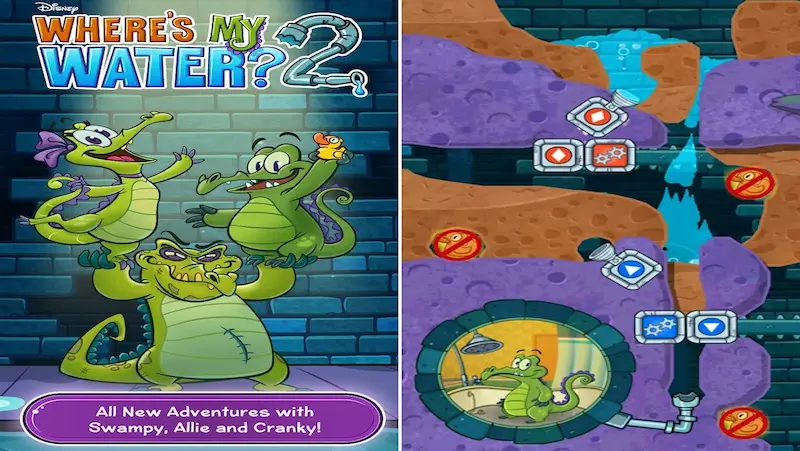
1. Where’s My Water?
This puzzle game features a lovable alligator named Swampy who needs help getting water for his shower. Players need to guide the water through various obstacles and tunnels to reach Swampy’s tub. The game incorporates physics-based puzzles & riddles for kids, requiring critical thinking and problem-solving skills. It challenges children to plan their moves, anticipate the outcomes, and find the most efficient solutions. The benefits include improving spatial reasoning, and logical thinking, and enhancing problem-solving abilities.
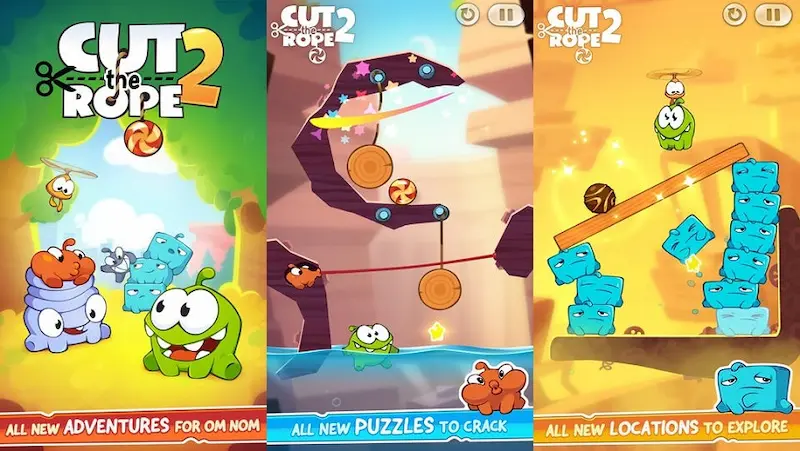
2. Cut the Rope
In this addictive puzzle game, players need to cut ropes in the right order to feed candy to a cute little creature named Om Nom. Each level presents unique challenges, including obstacles and puzzles that require logical reasoning and strategic thinking. By figuring out the correct sequence of cuts, children enhance their problem-solving skills, pattern recognition, and spatial awareness. Additionally, the game promotes patience and perseverance as kids strive to collect all the stars and complete each level.
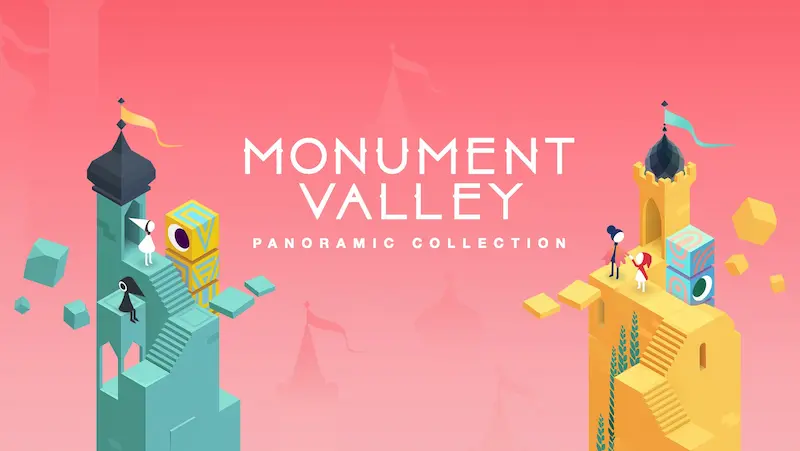
3. Monument Valley
This visually stunning puzzle game takes players on a surreal journey through mind-bending architecture and optical illusions. By manipulating the environment and rotating platforms, players guide the character through the levels. “Monument Valley” stimulates children’s creativity and critical thinking as they navigate intricate puzzles, manipulate perspectives, and discover hidden paths. The game promotes spatial reasoning, visual perception, and divergent thinking, encouraging kids to think outside the box and explore different solutions.
In all, these puzzle games offer several cognitive benefits for kids. These games enhance problem-solving skills, logical thinking, spatial reasoning, pattern recognition, and creativity. By engaging with challenging puzzles and obstacles, children develop resilience, perseverance, and the ability to think critically, all while having fun games and enjoying an immersive gaming experience.
Math Games
Here are three popular math games for kids along with the benefits they offer for numerical and problem-solving skills:
1. Math Blaster
Math Blaster is an exciting space-themed game that combines math challenges with engaging stories for kids. Players navigate through different levels, solving math problems to progress. The game covers various math concepts, including addition, subtraction, multiplication, and division. By solving these problems within a time limit, children improve their numerical skills, mental calculation abilities, and problem-solving strategies. Math Blaster also enhances critical thinking by incorporating logical puzzles and encouraging strategic decision-making.
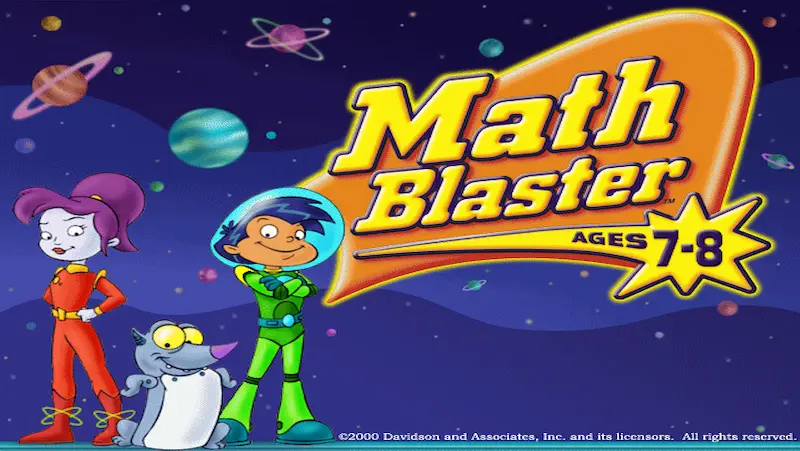
2. Prodigy
Prodigy is an online math game that offers a fantasy role-playing adventure combined with math learning. Players create and customize their characters, then answer math questions to defeat monsters and progress through the game. Prodigy adapts the difficulty level based on the child’s skill level, ensuring a personalized learning experience. The game covers a wide range of math topics, from basic arithmetic to more advanced concepts. By answering math questions correctly, children strengthen their numerical skills, improve their problem-solving abilities, and enhance their mathematical fluency.
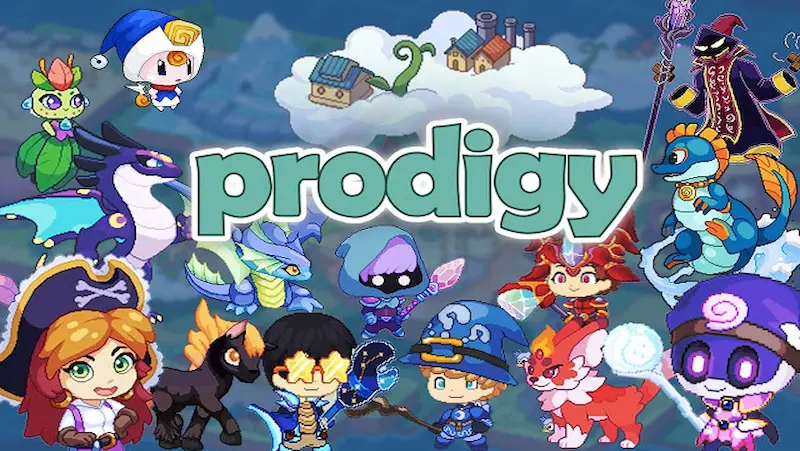
3. Monster Math
Monster Math is a fun and educational game that integrates math challenges with an entertaining monster-themed storyline. Players solve math problems to defeat monsters and progress through different levels. The game covers various math topics such as addition, subtraction, multiplication, division, and fractions. By engaging with these math problems, children develop their numerical skills, improve their mental math abilities, and enhance their problem-solving strategies. Monster Math also offers adaptive difficulty, ensuring that the game adjusts to the child’s skill level and provides appropriate challenges.
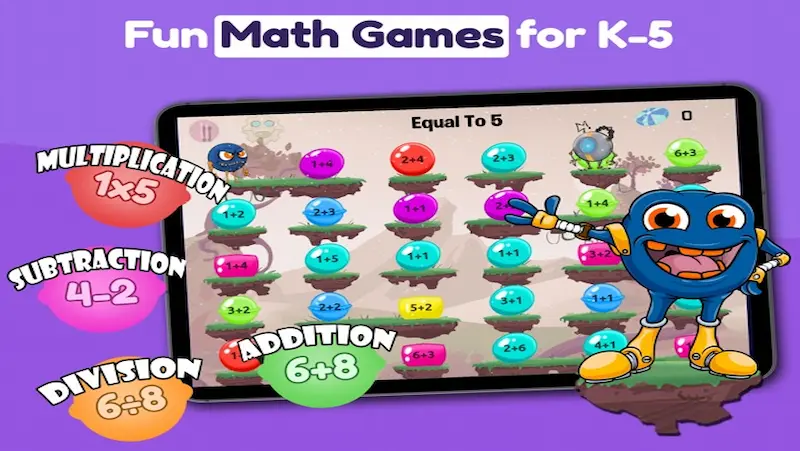
In summary, math games like “Math Blaster,” “Prodigy,” and “Monster Math” provide numerous benefits for children’s numerical and problem-solving skills. These games improve mathematical fluency, enhance mental calculation abilities, and strengthen problem-solving strategies. By making math fun and interactive, these games encourage children to develop a positive attitude toward math and boost their confidence in tackling math challenges.
Strategy Games
Here are three popular strategy games for kids along with the benefits they offer for critical thinking and decision-making abilities:
1. Chess
Chess is a classic strategy game that has been enjoyed for centuries. It involves two players who strategically move their pieces on a checkered board to capture the opponent’s king. Chess requires critical thinking, planning ahead, and analyzing different moves and their consequences. By playing chess, children develop their strategic thinking, pattern recognition, logical reasoning, and decision-making skills. The game promotes foresight, concentration, and the ability to consider multiple possibilities, ultimately enhancing their overall cognitive abilities.

2. Ticket to Ride
Ticket to Ride is a board game where players compete to build train routes across various cities. Players need to strategize their moves, plan their routes efficiently, and adapt to changing circumstances. The game challenges children to make strategic decisions based on limited resources and information, considering factors like opponents’ moves and optimal routes. By playing Ticket to Ride, kids develop critical thinking, spatial reasoning, and the ability to evaluate different options and make calculated decisions.
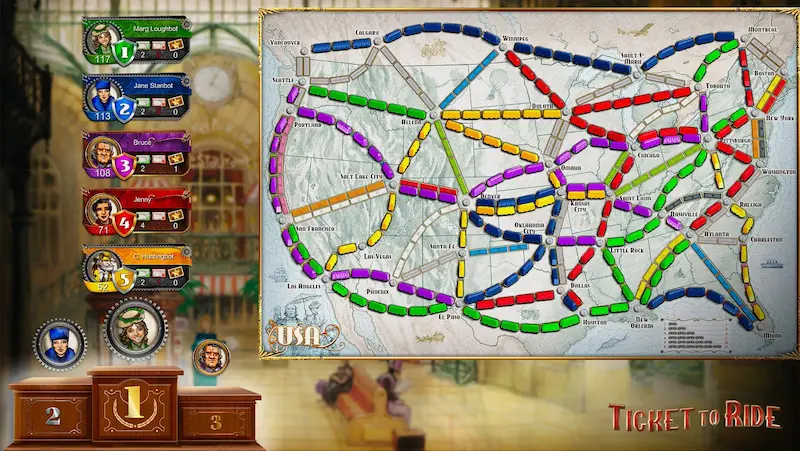
3. Catan Junior
Catan Junior is a simplified version of the popular board game Settlers of Catan, designed specifically for younger players. In the game, players become pirates, collecting resources, building ships, and establishing pirate hideouts on different islands. Catan Junior involves resource management, negotiation, and strategic decision-making. Children must assess their options, make trade-offs, and strategize to maximize their chances of winning. The game enhances critical thinking, problem-solving, and decision-making skills while promoting social interaction and negotiation abilities.
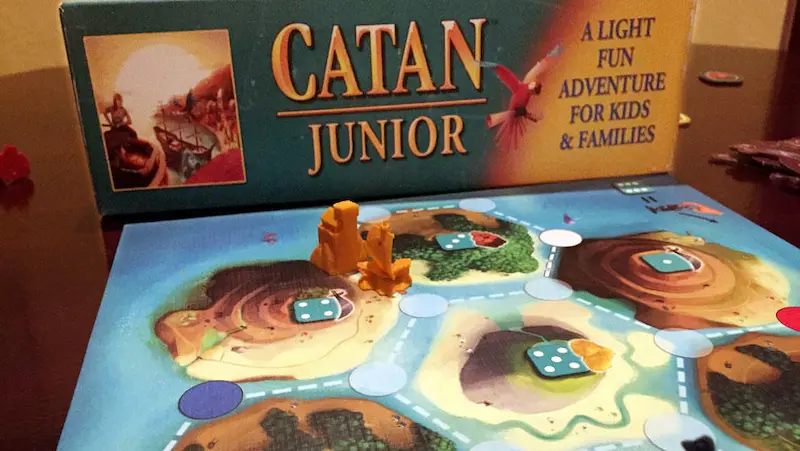
These games stimulate strategic thinking, logical reasoning, pattern recognition, and the ability to plan ahead. By engaging with complex decision-making situations and evaluating various possibilities, children develop their analytical skills, adaptability, and capacity to make informed choices. Strategy games provide an enjoyable and challenging environment that nurtures essential cognitive skills, preparing kids for real-life problem-solving scenarios.
Creative Games
Here are three popular creative games for kids along with the benefits they offer for imagination and self-expression:
1. Minecraft
Minecraft is a sandbox game that allows players to build and explore virtual worlds made up of blocks. It offers limitless possibilities for creativity, enabling children to construct buildings, landscapes, and even entire cities. Minecraft encourages imagination by providing a blank canvas where kids can bring their ideas to life. Through building and designing, children develop spatial awareness, problem-solving skills, and the ability to think creatively. The game also promotes self-expression as kids express their individuality through their unique creations.
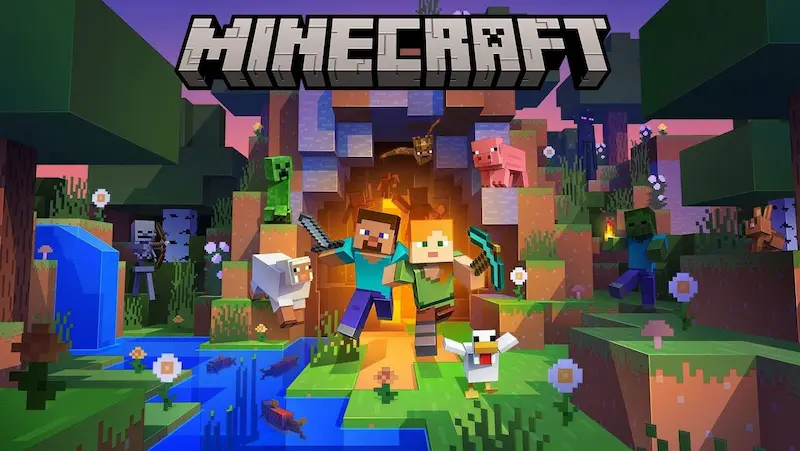
2. Roblox
Roblox is a platform that allows users to create and play games designed by other players. It provides a range of tools and templates for game development, allowing kids to design their own games, characters, and virtual environments. Roblox fosters creativity by empowering children to be game creators and encouraging them to imagine, design, and implement their ideas. Through the process, kids enhance their problem-solving abilities, learn basic kids coding language concepts, and express their creativity in a collaborative and supportive community.
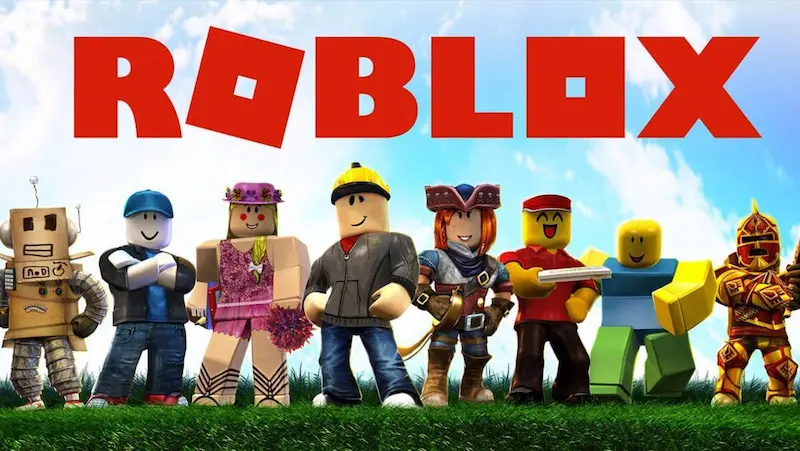
3. LittleBigPlanet
LittleBigPlanet is a platformer game that combines gameplay with a robust level editor. Players navigate through various levels while also having the ability to design and share their own levels with the community. LittleBigPlanet promotes imagination by enabling children to create their own unique worlds, characters, and challenges. It encourages self-expression as kids design levels that reflect their creativity and personal style. By engaging with the game’s tools and sharing their creations, children develop their problem-solving skills, artistic abilities, and the confidence to express their ideas.
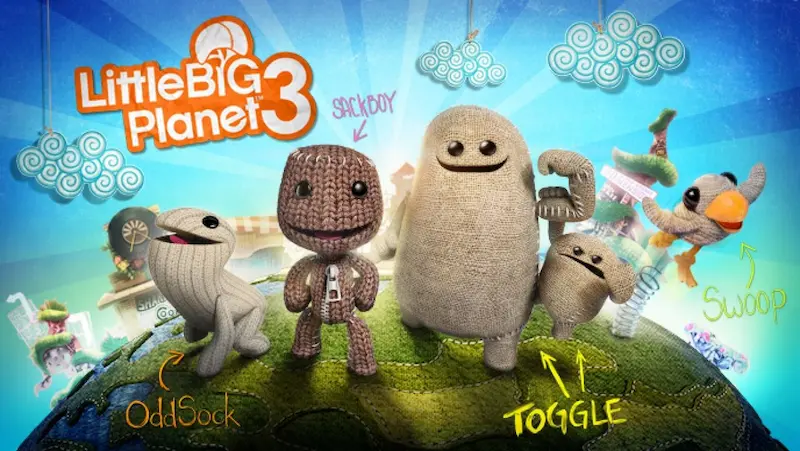
These creative games provide children with the means to unleash their imagination and express themselves. These games foster creativity, problem-solving, and self-expression by offering a platform for children to build, design, and share their creations.
Through gameplay, kids develop their artistic skills, spatial awareness, and critical thinking abilities. Creative games not only entertain but also empower children to become active participants in the digital world, encouraging them to think creatively and bring their ideas to life.
Physical Games
Here are three popular physical games for kids along with the benefits they offer for gross motor skills and socialization:
1. Tag
Tag is a classic outdoor game where one player is “it” and attempts to touch or tag other players, who then become “it” in turn. Tag promotes gross motor skills as children run, dodge, and maneuver to avoid being tagged. The game enhances agility, coordination, and balance. It also encourages socialization as kids interact with one another, practice communication skills, and develop teamwork. Tag fosters friendly competition, cooperation, and the ability to follow rules.

2. Simon Says
Simon Says is a game where one person acts as “Simon” and gives commands to the other players. The players must only follow commands that begin with the phrase “Simon says.” This game improves gross motor skills as children jump, clap, hop, and perform various movements based on the given commands. Simon Says enhances listening skills, concentration, and body awareness. It also promotes socialization as children take turns being “Simon” and learn to follow instructions together.
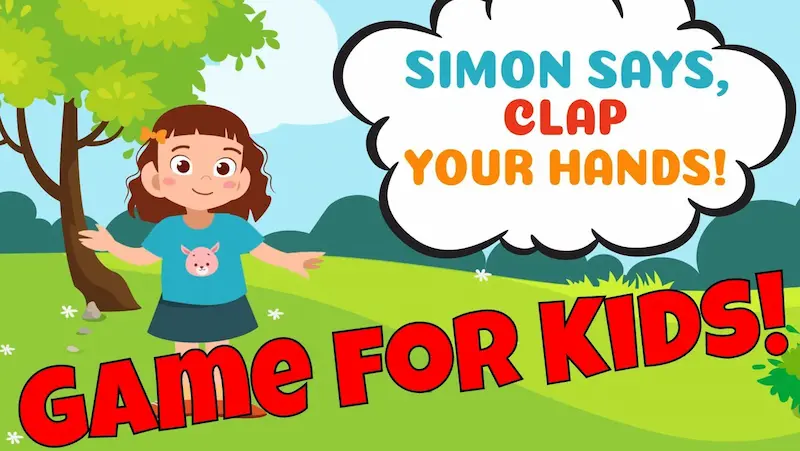
3. Obstacle Course
An obstacle course is a physical game that involves setting up a series of challenging activities for kids or obstacles for children to navigate through. It can include crawling under objects, climbing over obstacles, balancing on beams, and more. Obstacle courses promote gross motor skills as kids engage in activities that require strength, coordination, and balance. The game enhances problem-solving abilities as children figure out the best strategies to overcome each obstacle. Obstacle courses also encourage socialization as kids can participate individually or in teams, fostering teamwork, cooperation, and friendly competition.
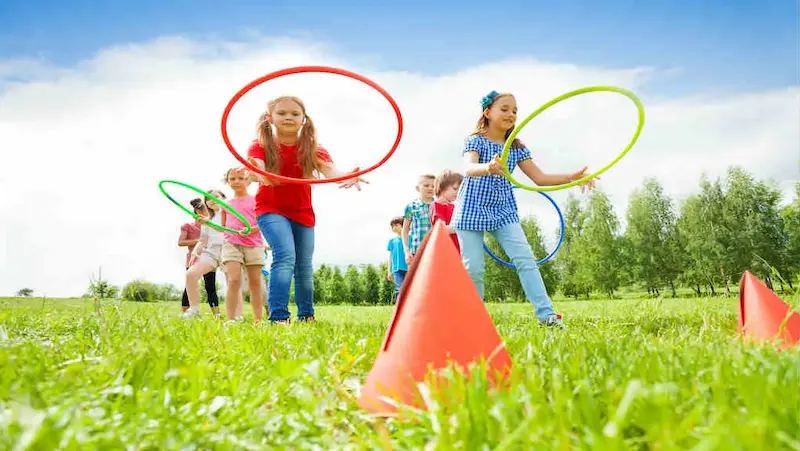
These physical games provide numerous benefits for children’s gross motor skills and socialization. These games promote physical activity, improving agility, coordination, balance, and overall fitness. They also enhance social skills as children interact, communicate, and collaborate with one another. Physical games create an enjoyable and active environment where kids can develop their motor skills, build relationships, and have fun together.
Conclusion
In conclusion, games play a crucial role in children’s development, offering a range of benefits for their cognitive, physical, and social growth. Puzzle games enhance problem-solving skills and logical thinking, while math games improve numerical abilities and problem-solving strategies. Strategy games foster critical thinking and decision-making skills, and creative games stimulate imagination and self-expression. Physical games develop gross motor skills and promote socialization.
These games provide engaging and interactive environments where children can learn, explore, and grow. They not only offer educational value but also make learning fun and enjoyable. Whether it’s solving puzzles, strategizing moves, or engaging in physical activities, games provide holistic experiences that contribute to children’s overall development.
As parents and educators, it is essential to encourage a healthy balance between educational games and other activities. By embracing the power of games, we can create an environment that nurtures children’s potential, fosters their love for learning, and equips them with essential skills for success in the modern world. Let’s harness the benefits of games and watch as children thrive, learn, and have fun along the way.
To get your hands on more educational and free resources on coding for kids, financial education for kids, and robotics for kids do check out the BrightCHAMPS Page now!
To get your hands on more such educational and free resources on coding, robotics, game development, etc., do check out the Brightchamps Blog Page now!
Frequently Asked Questions
The benefits of playing games for kids include enhanced cognitive development, improved problem-solving skills, increased social interaction, and the promotion of physical activity and coordination.
Educational games enhance learning and development by providing interactive and engaging experiences that promote cognitive skills, problem-solving abilities, critical thinking, and knowledge acquisition in a fun and enjoyable manner.
The age restrictions for the games listed in this article may vary. It’s important to check the recommended age range or content suitability guidelines provided by game developers or publishers.
The games listed in this article may include both offline and online options. It’s important to check the specific game requirements and availability to determine if they can be played offline.
The availability and pricing of the games listed in this article may vary. Some games may be free to play, while others may require payment or offer in-app purchases.
Yes, parents can play these games with their children. Many of them offer multiplayer or cooperative options, allowing parents and children to enjoy the games together and have quality bonding time.
To determine if a game is appropriate for your child’s age and skill level, you can consider the game’s recommended age range, content descriptions, reviews, and ratings provided by reputable sources, and even try playing the game yourself.
Yes, there are safety concerns with online games for kids. Parents should monitor and regulate online interactions, ensure privacy settings, and educate children about responsible online behavior and potential risks.


 We are an army of educators and passionate learners from BrightChamps family, committed to providing free learning resources to kids, parents & students.
We are an army of educators and passionate learners from BrightChamps family, committed to providing free learning resources to kids, parents & students.









